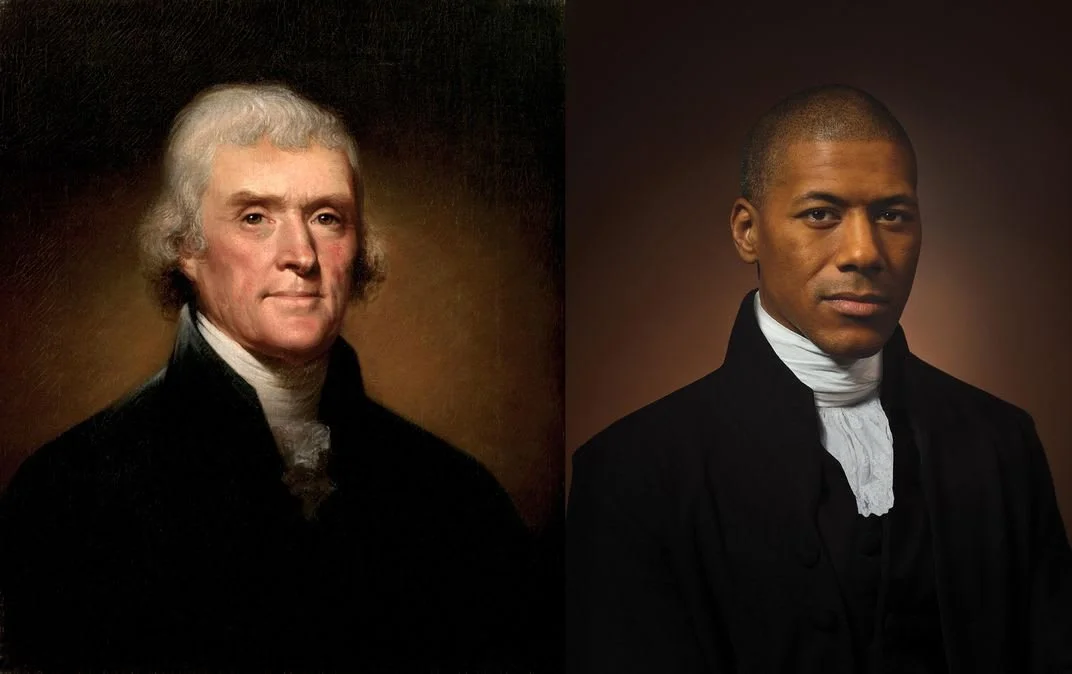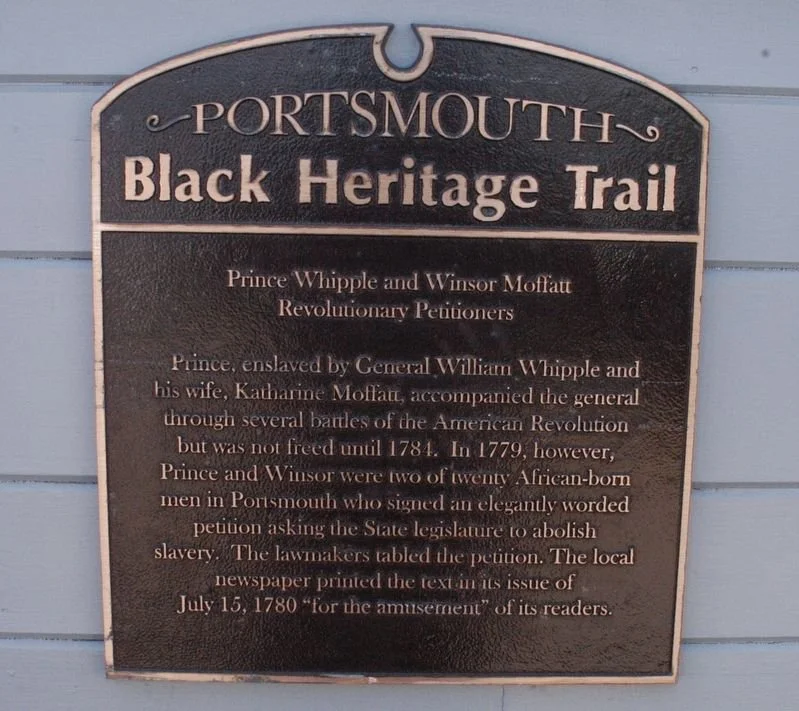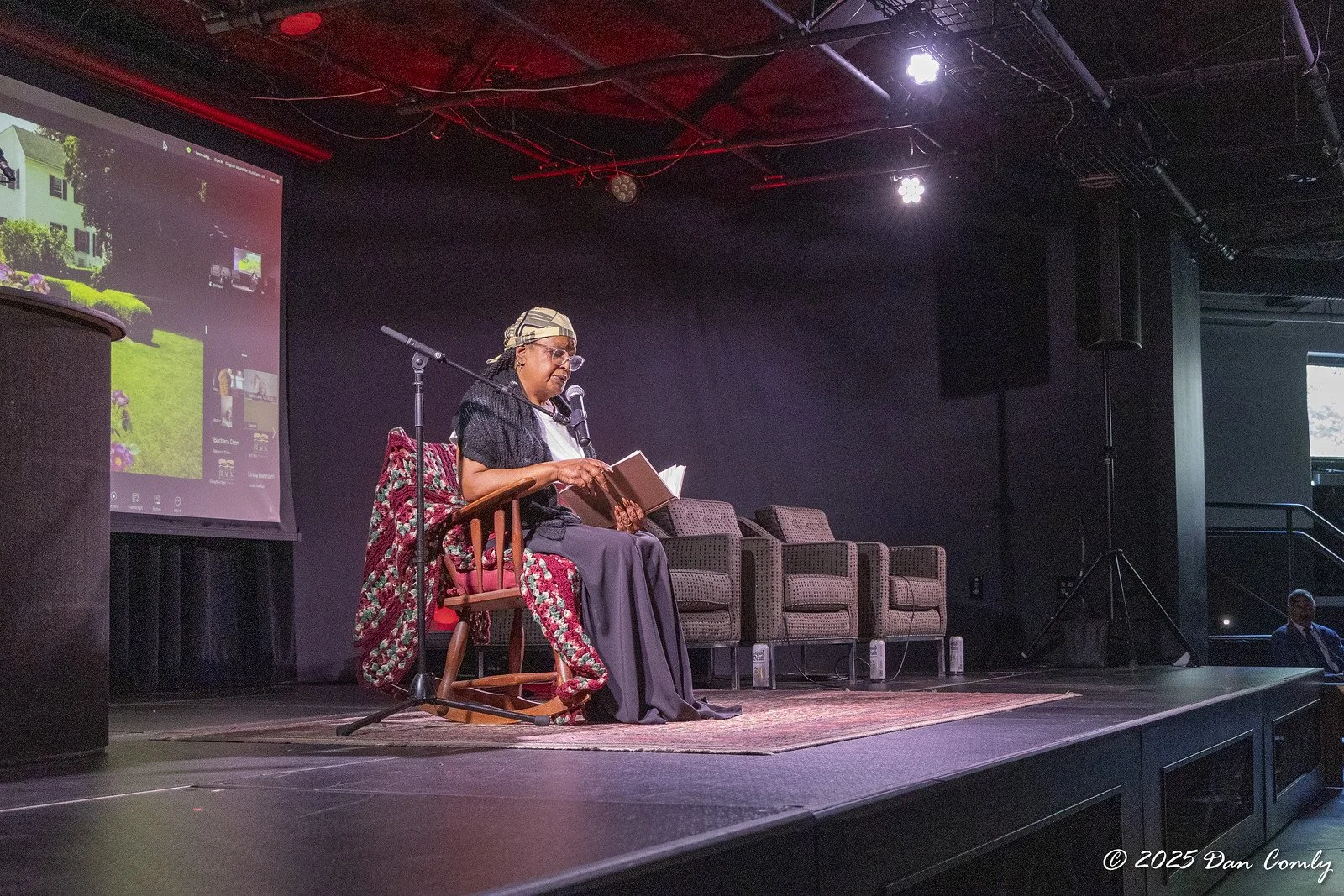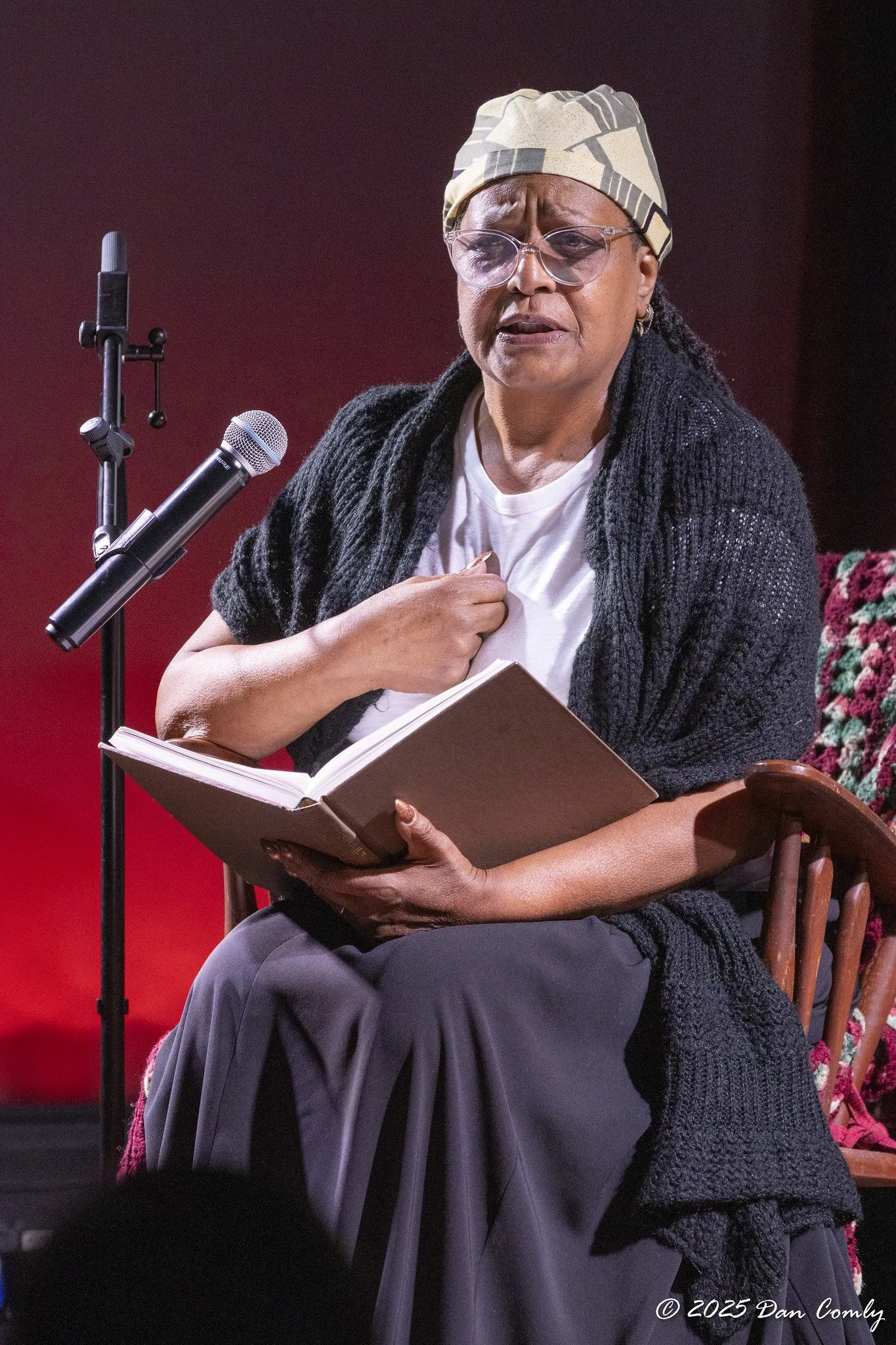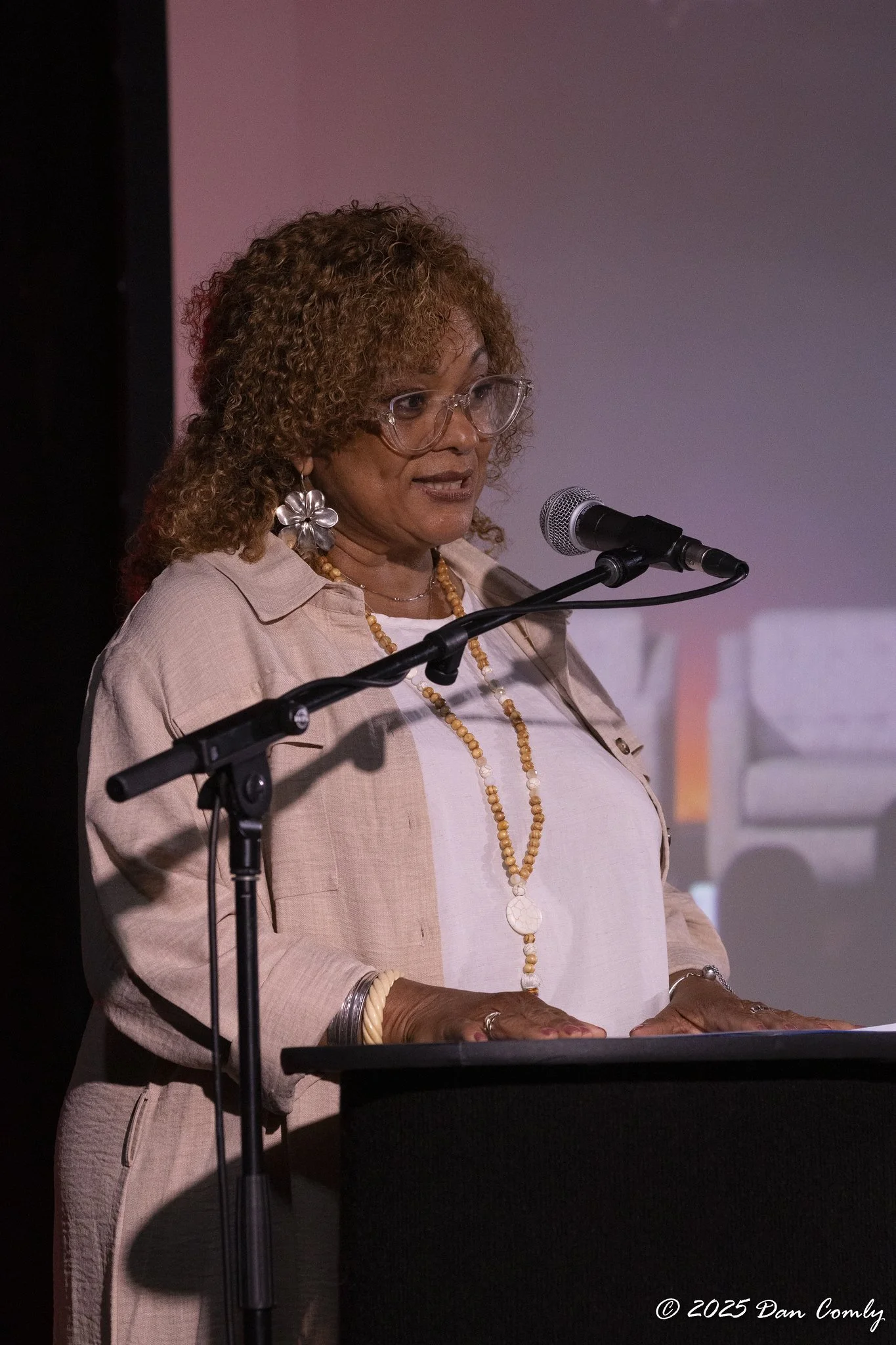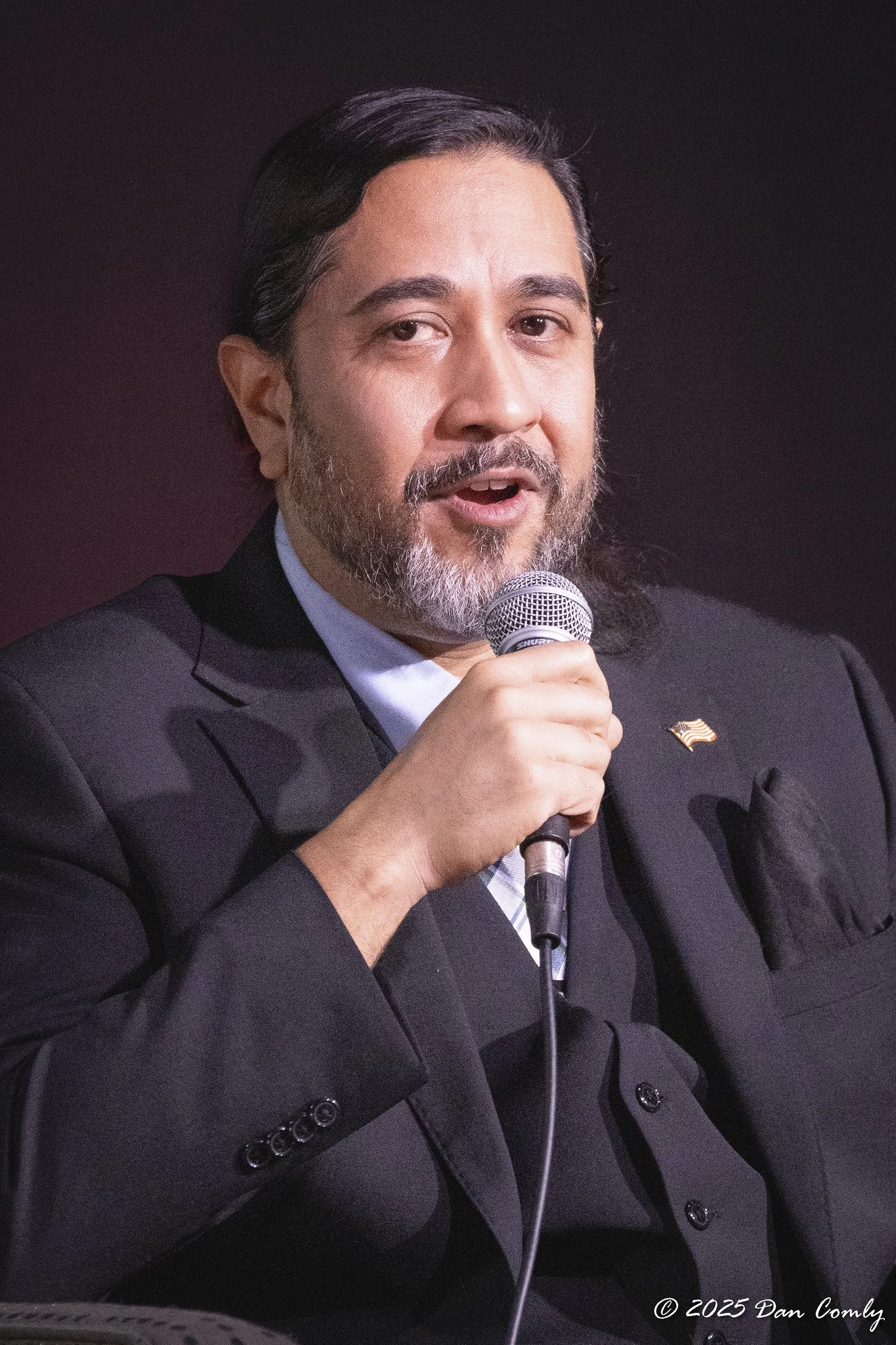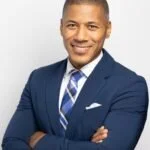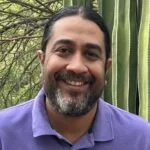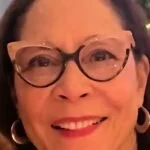"Erased Bloodlines": Reclaiming the Truth of America's Founding
The Erased Bloodlines panelists, BLM-NH, NHCJE, & BHTNH members. From left to right– Dr. Lowell Chris Matthews, Brendan Narcia, Laurel Guild Yancey, Shannon LaNier, Tanisha Johnson (BLM-NH), Anthony Poore (NHCJE), Sandi Clark Kaddy, JerriAnne Boggis (BHTNH).
As America counts down to its 250th birthday in 2026, many are wondering what it means to celebrate the nation’s founding. A Juneteenth panel discussion hosted by the Black Heritage Trail of New Hampshire, titled Erased Bloodlines: The Black Descendants Of The “Founding Fathers” And Those They Enslaved, and moderated by the New Hampshire Center for Justice & Equity’s President, Anthony Poore, sought to answer that question and deepen our understanding of freedom, democracy, and resilience.
The conversation brought together Black descendants of America's early Presidents, alongside a descendant of the enslaved from New Hampshire’s Moffatt-Ladd House, to reveal the overlooked stories of those who helped build the country. At a time when acknowledging the complexities of American history is framed as divisive, these voices offer a profound counterpoint. Reclaiming the full truth for a complete understanding of history, even when painful, makes room for growth, reckoning, and healing.
“This Fourth of July is yours, not mine. You may rejoice, I must mourn.”
Uncovering the Lives of Our Founding Mothers and Fathers
Brendan Narcia, the inaugural secretary of the League of Descendants Enslaved at Mount Vernon, spoke to the complexity of patriotism for African Americans and how reclaiming these erased bloodlines reshapes our understanding of American history: “A lot of people within this country don’t feel connected to Independence Day, but the truth is you are - you’re American,” he said.
Researching his sixth great-grandmother, known as Doll, the lead chef at George Washington’s Mount Vernon, who is set to be honored during the organization’s 250th anniversary celebrations, gave him a new sense of pride. “This provides the dignity and space to show that she is one of the founding mothers of this country, just like the founding fathers,” Narcia added. Doll is referred to as the matriarch of the largest extended family within Mount Vernon's enslaved community, including five children, fourteen grandchildren and at least four great-grandchildren.
“This provides the dignity and space to show that she is one of the founding mothers of this country, just like the founding fathers.”
Archaeologists recently unearthed 35 glass bottles containing perfectly preserved cherries and berries from the 18th century at George Washington’s Mount Vernon. Descendant Brendan Narcia said this is “a testament to the work that Doll either did herself or supervised.”
For Shannon LaNier, a sixth great-grandson of President Thomas Jefferson and Sally Hemings through their son Madison Hemings, acknowledging the full truth of that legacy has been a journey that started in his second-grade classroom. “When I first learned that I was a descendant of a president, I was so proud I wanted to tell everyone,” he said. “When my teacher didn’t believe me, my mom taught me not to let others define me.”
For LaNier, featured above next to President Thomas Jefferson in Drew Gardner’s Descendants project, “this image allows us to hold a mirror up to America to say, this is our history, and that history has led to a white president having a sixth great-grandson that looks like me.”
Regarding the celebration of Independence Day, LaNier noted that without the blood, sweat, and tears that enslaved people poured into the founding of this country, we would not be celebrating a 250th anniversary in 2026 at all.
“Even though [our ancestors] didn’t sign the Declaration of Independence, do you think Thomas Jefferson would’ve had time to write it without over 600 enslaved people working for him, making sure he was fed, clothed, and taken care of? I tell my kids to be proud of our ancestry because we don’t just come from slavery, we come from people who endured the unthinkable.”
Piecing Together the Mosaic of Our Past
Each descendant spoke to the laborious and emotional work of uncovering the history that they had long been deprived of. Leontyne Clay Peck spent 21 years researching the Clay Family Society, piecing together stories passed down by her elders and the few available historical records of her Black ancestors. “I am a descendant of John Clay, who arrived in Jamestown between 1612 and 1613,” she recalled. “I always say that I'm a cousin of Senator Henry Clay of Kentucky and Casey Clay.”
Peck embraces the complexity of her family’s legacy. “We think about Senator Clay as being the Great Compromiser, but he was also president of the American Colonization Society for about 13 years,” she noted. By acknowledging these layered truths, Peck feels a calling to tell her ancestors’ stories and create a more honest perspective of the past. “We now have the chance to look at history, the good and the bad, and recognize that we are survivors,” she said. “I don’t see this as just our story. This is the American story. This country was built by our ancestors, and it’s up to us to tell the truth.”
For Laurel Guild Yancey, a direct descendant of Prince Whipple and Dinah Chase Whipple, learning about her roots was a serendipitous revelation. “In June 2019, during my first visit to Portsmouth [New Hampshire], I took a stroll before dinner and noticed a historical marker of revolutionary petitioners Prince Whipple and Winsor Moffatt. I took a picture and went back to the hotel,” she recalled. “In February 2022, I got a LinkedIn message from Tanya Ward Singer, whom I didn't know, where she explained that I am a descendant of Prince Whipple through her step ancestor William Whipple, the enslaver of Prince Whipple.”
“We now have the chance to look at history, the good and the bad, and recognize that we are survivors. I don’t see this as just our story. This is the American story. This country was built by our ancestors, and it’s up to us to tell the truth.”
Prince Whipple fought at the battles of Saratoga and in Delaware during the War for Independence, and he was also one of twenty enslaved men who petitioned the New Hampshire legislature for freedom in 1779.
Since then, Yancey and Singer have been interviewed and spoken at museums to share their story and bring people together through truth and facts. “There is no known portrait of Prince Whipple, but he is part of American history, and that contribution must be acknowledged and recognized,” she said. “When we celebrate 250 years of the Declaration of Independence, I ask all of us to remember, as a country, what we were founded on and how all of us contributed to this nation.”
“When we celebrate 250 years of the Declaration of Independence, I ask all of us to remember, as a country, what we were founded on and how all of us contributed to this nation.”
Truth Over Sanitization
As America reckons with its complex past, and despite attempts to sanitize history through efforts such as the Divisive Concepts Law, participants of the Erased Bloodlines panel discussion emphasized that telling the whole story is meant to heal rather than divide. Although it can be painful to look at stories obscured by silence, trauma, and time, uncovering and documenting the truth adds nuance to our collective understanding of history. “We constantly see books that are cleaned up,” Narcia said. “But the stories that we’re providing here are details that are important to share.” Combined with the dominant historical narratives, they offer a more complete picture of our shared American history.
LaNier echoed this sentiment: “When we stop looking at it as his story and start seeing it as our story, we can begin to heal.” He made a point to demystify the romanticized accounts of his family story and figures like Sally Hemings. “In today’s terms, [President Thomas] Jefferson raped a young girl who was 14 and 30 years younger than him. People like to make it a love story, but she was owned as property. She had no choice.”
For Peck, the answer lies in our humanity. “When you embrace your humanity and the humanity of others, you build relationships and connections that are deeply meaningful,” she said. “When you learn your family’s history and the broader history of America, you begin to see the full picture: there are ups and downs, bumps and bruises, but you learn from it, and you heal. That’s how we grow stronger.”
“When you embrace your humanity and the humanity of others, you build relationships and connections that are deeply meaningful. When you learn your family’s history and the broader history of America, you begin to see the full picture: there are ups and downs, bumps and bruises, but you learn from it, and you heal. That’s how we grow stronger.”
Yancey praises Valerie Cunningham, co-author of Black Portsmouth and founder of the Portsmouth Black Heritage Trail (known today as the Black Heritage Trail of New Hampshire), for her work reclaiming Black history. “It makes me very proud that Prince and Dinah Chase Whipple’s invisible lives have been documented in this book and other publications,” she said. “The whole point is to humanize these erased descendants, [...] they should be recognized as more than just being enslaved.”
“The whole point is to humanize these erased descendants, [...] they should be recognized as more than just being enslaved.”
Finding Unity in Our Shared History
As the conversation came to a close, Dr. Chris Matthews, associate professor of Global Business and Leadership at Southern New Hampshire University (SNHU) and director of the University Honors Program, summed up the heart of the dialogue: “We may not be descendants of the so-called founding fathers, but after today’s conversation, we are all descendants of truth.”
“We may not be descendants of the so-called founding fathers, but after today’s conversation, we are all descendants of truth.”
Rather than pitting us against one another, the full, true stories invite us into a shared reckoning that affirms our common humanity. In an era where confronting history is often seen as polarizing, these testimonials remind us that kindness, respect, and compassion are the path forward. “When we have the opportunity to come together like this, we're creating space to include others,” reelected Narcia. “At the end of the day, this is American history, and most of us can find a piece of ourselves in it.” Embracing that truth with courage and empathy is how we honor our nation’s legacy and shape a more unified, just future.
As JerriAnne Boggis, Executive Director of the Black Heritage Trail of New Hampshire, remarked, “To tell these stories is not to tear down U.S. history; they complete and strengthen it. Because a nation that can face its truth is a nation with no power to grow, reckon, and heal.” Embracing that truth with courage and empathy is how we honor our nation’s legacy and shape a more unified, just future.
“To tell these stories is not to tear down U.S. history; they complete and strengthen it. Because a nation that can face its truth is a nation with no power to grow, reckon, and heal.”
Photos by Dan Comly.
About Shannon LaNier
Shannon LaNier
Shannon LaNier is a veteran TV journalist and host, known for his work on News 12’s Be Well and Road Trip, reaching over 3 million homes across the NY metro area. A 9th-generation descendant of Thomas Jefferson and Sally Hemings, he co-authored Jefferson’s Children: The Story of One American Family. Shannon previously anchored for CW39 and BNC, and hosted shows for BET and Black Enterprise. He also hosts the parenting podcast Daddy Duty 365 and speaks nationally on race, history, and entrepreneurship. A proud husband and father of three, he is a member of Alpha Phi Alpha and NABJ. Follow him @MrShannonLanier.
About Brendan Narcia
Brendan Narcia
Brendan Narcia is a descendant of Doll, an enslaved chef at George Washington’s Mount Vernon, and serves on the education and membership committees of the League of Descendants. A U.S. Air Force veteran and proud member of the Gila River Indian Community, Brendan holds a bachelor’s degree in Human Communication from Arizona State University. His passion for ancestry research grew through work with the VA and an internship in the late Senator John McCain’s office. Brendan brings a unique perspective to historical storytelling, bridging Indigenous, African American, and American narratives through public history and descendant advocacy.
About Laurel Guild Yancey
Laurel Guild Yancey
Laurel Guild Yancey is an attorney and advocate for racial justice whose lineage traces to Prince Whipple, an African man enslaved by William Whipple—signer of the Declaration of Independence—at the Moffatt-Ladd House in New Hampshire. Laurel has spoken at national events, including the 2024 Slave Dwelling Project Conference, and was featured by NHPR in a story exploring New Hampshire’s role in slavery. Honored by We The Action in 2022, she received the Amicus Mundi award for empowering Black voters. Through legal work, storytelling, and family research, she uplifts overlooked voices in American history and honors her ancestors’ legacy of resistance.
About Leontyne Clay Peck
Leontyne Clay Peck
Leontyne Clay Peck is an educator, author, and speaker specializing in African American history and genealogy. With over 30 years of experience, she has traced her roots to John Clay (1613), U.S. Colored Troop soldier Job Gaiter, and the enslaved community of President James Madison. She holds degrees from American University, the American University of Rome, and West Virginia University, and has taught African American Studies and Sociology. Leontyne is the author of Our Mother’s Dresses, Silver Children, and Paxton Street. Her awards include Maryland Business & Professional Woman of the Year and Ford Foundation Scholar. She lives in Piedmont, WV, with her family.



